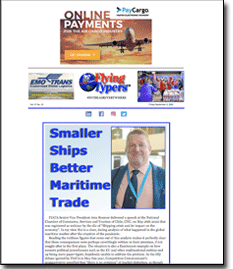|  Richard Malkin, the greatest and first air cargo Editor, who passed
away on July 11, 2017, often shared his experiences in air cargo
with FlyingTypers.
Richard Malkin, the greatest and first air cargo Editor, who passed
away on July 11, 2017, often shared his experiences in air cargo
with FlyingTypers.
Dick Malkin, covering The Berlin Airlift
in 1948 is pictured here in front what was left of The Reichstag
whilst reporting on the big aerial parade of all-cargo aircraft
into Berlin Tempelhof, that saved a city and also gave rise to modern
air cargo.
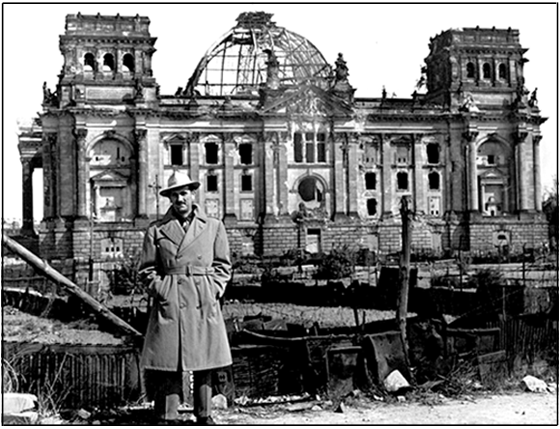
Malkin worked until he passed away
quietly at 105 years of age.
We went out every couple weeks for
breakfast. At one encounter I asked him as he thought back nearly
70 years what stories had remained fresh in his mind that we might
share today.
Dick went to work furiously turning
out reams of yellow legal pad copy filled with his distinctive elegant
prose in double spaced handwriting.
Mr. Malkin was near blind at that
time but that did not slow him down.
He ditched the typewriter and worked
it out with Sabiha to get the stories written, edited and out in
every case by deadline.
When Richard Malkin died and the flame
and light went out we were left with several stories.
Rereading the lot and thinking how
much these stories might mean to air cargo people, because they
are all about people, we have decided to share them with
you.
The format Malkin utilized was the
short story genre where his immense word power really got down to
business.
One year before The Berlin Airlift
steered him into air cargo, Malkin won the coveted O’Henry
Prize alongside Truman Capote for fiction.
Here he employs a similar format to
highlight different events, trends, people and their thoughts over
the 70 years he covered the air cargo industry.
We hope you enjoy this series.

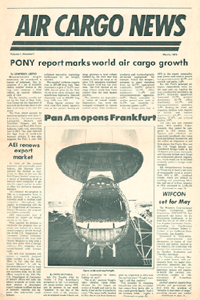 Alive
In '75 Alive
In '75
It
was not the kind of a year to inspire cheerful souls. The
Organization of Petroleum Exporting Countries (OPEC) had a
stranglehold on the world oil market, and the airlines were
put to a serious test. There was that economic phenomenon,
stagflation, and America was in its grid.
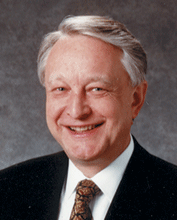 Some
airlines were studying plans to reduce services: others were
reviewing expansion plans. But all was not dark. Some
airlines were studying plans to reduce services: others were
reviewing expansion plans. But all was not dark.
At Air Express International,
a new division was introduced—Fashionair—to serve
the wearing apparel industry. Among a series of significant
appointments was young Guenter Rorhmann, vice president–Germany,
who eventually went on to Lead AEI.
And, yes, FlyingTypers’
daddy, Air Cargo News, burst onto the air cargo scene.
Sailing
Along On Subic Bay
Prompted by feasibility studies,
which covered manufacturing and trends in trade over the ensuing
three decades, Federal Express arrived at a decision to say
farewell to its Asia Pacific hub in Subic Bay, Philippines.
 Barry
Hansen, senior vice president of Air Express International,
in a critical statement of shippers who tended to look at
the air freight budget without examining the tradeoffs, stated: Barry
Hansen, senior vice president of Air Express International,
in a critical statement of shippers who tended to look at
the air freight budget without examining the tradeoffs, stated:
“There is no appreciation
that air freight is an element of customer service. Take the
traffic manager in a staff position. He is often saddled with
a restricted and unrealistic budget designed to control the
expenditures on air freight. The tradeoff of repeat sales
needing competitors’ delivery schedule, and customer
satisfaction are seldom brought into focus.”
|
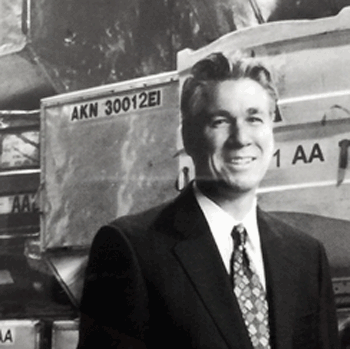
Get On The Same Page
said Robert L. Jones,
Jr. in 1999 on the subject of dealing with the customer.
The late founder chairman and
chief executive officer of Alliance Airlines put it this way:
“You want to avoid
problems with the customer, so you make sure that you settle
all issues before the contract is signed.
“After
that, all else is easy.” |
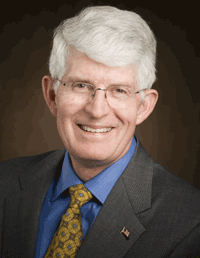 Refine
Your Business Technique Refine
Your Business Technique
said Dennis W. Patrick, President, Lynden Air Freight in 2002.
He led that company for a quarter
of a century before retiring in 2008.
In a forceful comment on techniques
for “everyday work,” Mr. Patrick reasoned: “You
can remember one minute manager and management of objective.
“You can remember how Japan and ‘quality management’
led the industrial world in their modern management and demand
for ‘zero tolerance’ for errors and ‘quality
management.’
“Still, there are some principles
that prevail, and I think quality as a noun, incorporated in
a culture is one of those.
“I am thinking of continuous
improvement, meeting mechanics, measurement, and process improvement.” |
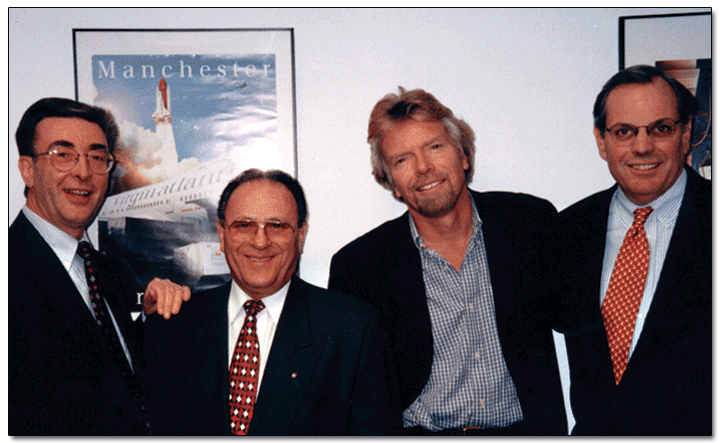
The
Constant Is Change
said Angelo
Pusateri, co-founder and president of Virgin Atlantic Cargo
USA in 1989.
Commenting on the role
of opportunity, Angelo (pictured second from left with Alan
Chambers, Richard Branson and John Ryan, all of whom pioneered
Virgin Cargo declared:
“If there is anything I
have learned about the air cargo business, it is that nothing
ever remains the same, and as a marketing-oriented individual,
I would find it dull if it remained unchanged.
Where would opportunities then
come from?” |
|




